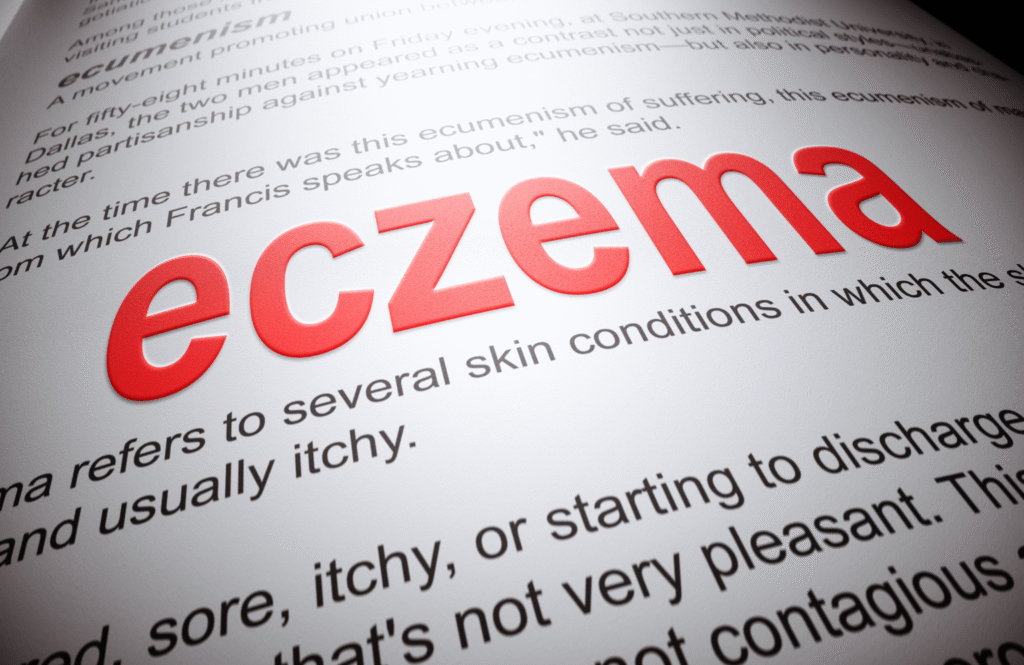“It starts with a scratch — just one — and before you know it, your skin feels like it’s on fire.”
For those living with eczema, relief can feel like a distant dream. It’s not just about dry, itchy patches or the burning sting of inflamed skin — it’s about sleepless nights, clothes that irritate, and the quiet exhaustion that comes from constantly battling your own body.
Families and loved ones often watch helplessly, unable to soothe the pain or frustration that eczema brings. And while steroid creams, moisturizers, and medications can help, many find themselves searching for something gentler — something that heals more than just the surface.
That’s where medical cannabis steps into the picture. Once considered unconventional, it’s now being studied for its potential to calm inflammation, ease itching, and support the skin’s natural balance. But is it truly a breakthrough — or simply another passing hope in the long struggle for relief?
Let’s find out what today’s science, and real-life experiences, reveal about medical cannabis and eczema.
For those living with eczema, relief can feel like a distant dream. It’s not just about dry, itchy patches or the burning sting of inflamed skin — it’s about sleepless nights, clothes that irritate, and the quiet exhaustion that comes from constantly battling your own body.
Families and loved ones often watch helplessly, unable to soothe the pain or frustration that eczema brings. And while steroid creams, moisturizers, and medications can help, many find themselves searching for something gentler — something that heals more than just the surface.
That’s where medical cannabis steps into the picture. Once considered unconventional, it’s now being studied for its potential to calm inflammation, ease itching, and support the skin’s natural balance. But is it truly a breakthrough — or simply another passing hope in the long struggle for relief?
Let’s find out what today’s science, and real-life experiences, reveal about medical cannabis and eczema.
Understanding Eczema
Eczema, or atopic dermatitis, is a chronic inflammatory skin condition that affects both children and adults. It disrupts the skin’s natural barrier, making it dry, sensitive, and prone to irritation. The condition often flares up in cycles—periods of intense symptoms followed by temporary relief.
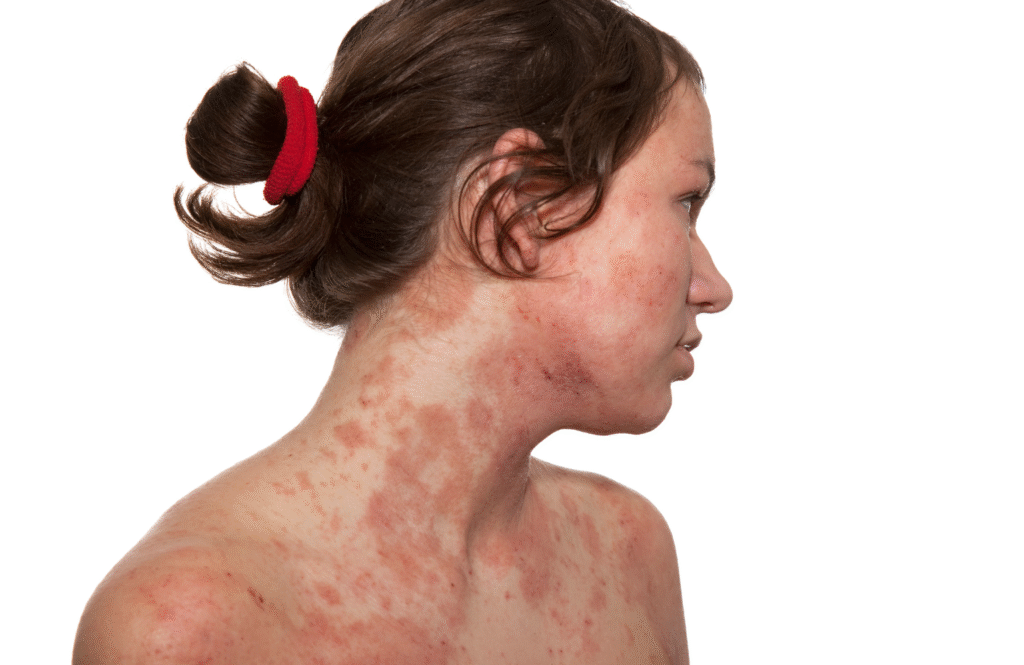
Common Symptoms of Eczema:
- Persistent itching, often worse at night
- Dry, rough, or scaly patches of skin
- Redness, inflammation, or swelling
- Cracked or oozing skin during severe flare-ups
- Thickened or leathery skin from repeated scratching
Traditional Treatments for Eczema
Managing eczema typically involves a combination of medical and self-care approaches aimed at reducing inflammation, soothing the skin, and preventing flare-ups.
Common Treatment Options Include
Medical marijuana is increasingly explored as a complementary option for managing diabetes. While research is still limited, early studies suggest that cannabis compounds like THC and CBD may offer benefits for certain diabetes-related symptoms.
- Topical Corticosteroids: Used to control redness, swelling, and itching during flare-ups.
- Moisturizers and Emollients: Help repair the skin barrier and retain hydration when used daily.
- Antihistamines: May reduce itching, especially at night.
- Immunosuppressive Medications: For severe eczema cases, doctors may prescribe drugs like cyclosporine or methotrexate.
- Phototherapy: Controlled exposure to ultraviolet (UV) light to calm inflammation and itching.
- Lifestyle Adjustments: Avoiding known triggers, using mild soaps, and keeping stress under control are crucial for long-term management.
These treatments focus on symptom control rather than a cure, helping individuals maintain skin comfort and prevent flare-ups.
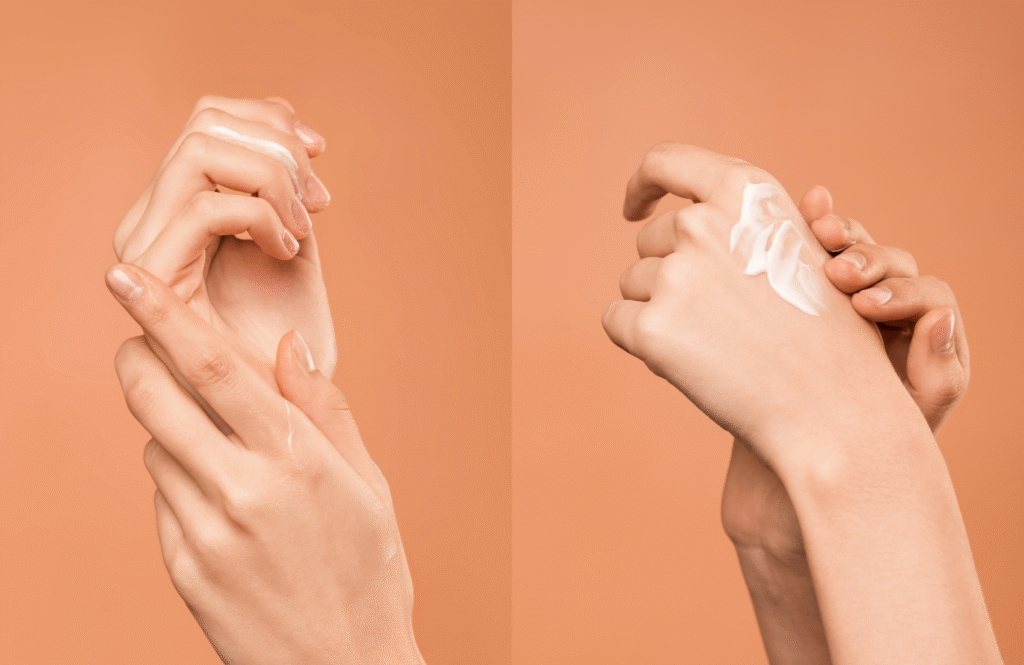
Can Medical Cannabis Help with Eczema Symptoms?
“It feels like living inside an itch you can’t escape.” That’s how many people describe eczema—a condition that’s as emotionally draining as it is physically uncomfortable. Red, inflamed, itchy skin can make even simple tasks feel unbearable.
In recent years, medical cannabis has emerged as a potential relief option. Compounds like CBD (cannabidiol) and THC (tetrahydrocannabinol) interact with the body’s endocannabinoid system, which helps regulate inflammation, immune response, and skin health. Studies suggest that topical cannabis formulations may reduce itching, calm inflammation, and even promote skin barrier repair.
While it’s not a miracle cure, some patients have reported fewer flare-ups and better comfort when using cannabis-based creams or oils—especially when traditional treatments fall short. However, consulting a medical professional experienced in cannabis therapy is key to finding safe, effective options tailored to each individual’s skin needs.
In recent years, medical cannabis has emerged as a potential relief option. Compounds like CBD (cannabidiol) and THC (tetrahydrocannabinol) interact with the body’s endocannabinoid system, which helps regulate inflammation, immune response, and skin health. Studies suggest that topical cannabis formulations may reduce itching, calm inflammation, and even promote skin barrier repair.
While it’s not a miracle cure, some patients have reported fewer flare-ups and better comfort when using cannabis-based creams or oils—especially when traditional treatments fall short. However, consulting a medical professional experienced in cannabis therapy is key to finding safe, effective options tailored to each individual’s skin needs.
How Cannabis Works on the Skin
Cannabis contains active compounds called cannabinoids—mainly CBD (cannabidiol) and THC (tetrahydrocannabinol)—that interact with the body’s endocannabinoid system (ECS). The ECS helps regulate inflammation, pain, and immune response—all key factors in eczema.
When applied topically through creams or oils, cannabinoids bind to receptors in the skin, helping to:
- Reduce inflammation: Calms overactive immune responses that trigger itching and redness.
- Soothe irritation: Lessens discomfort by interacting with sensory nerves.
- Support skin barrier repair: Enhances natural moisture retention and helps restore damaged skin.
CBD vs THC: Which Works Better for Eczema?
When it comes to soothing eczema, both CBD and THC play different but complementary roles—like two sides of the same healing coin.
CBD (cannabidiol) is best known for its anti-inflammatory and calming effects. It can help reduce redness, irritation, and that persistent itch by regulating immune activity in the skin. Since it’s non-psychoactive, CBD products (like creams, balms, or oils) are often preferred for daily use—gentle, steady, and subtle in their relief.
THC (tetrahydrocannabinol), on the other hand, has stronger pain-relieving and anti-itch properties. In topical form, it doesn’t typically cause a “high,” but may work more effectively on stubborn, inflamed patches that resist other treatments.
The most promising results often come from a balanced blend of both compounds, working together to soothe irritation, restore moisture, and support the skin’s natural repair cycle.
Don’t risk your health on guesswork
Book a consultation with our medical
marijuana experts today!
marijuana experts today!
Scientific Evidence on Cannabis for Eczema
- A 2020 review on PubMed Central (National Institutes of Health) states that topical CBD shows anti-inflammatory and anti-itch activity in animal models and reports early human evidence suggesting benefit for atopic dermatitis symptoms. https://www.ncbi.nlm.nih.gov/pmc/articles/PMC7736837/
- A 2022 NIH/PMC review states that topical cannabinoids (including CBD and related compounds) produced anti-itch, anti-inflammatory, and wound-healing effects in small studies and case reports for inflammatory skin conditions such as eczema. https://www.ncbi.nlm.nih.gov/pmc/articles/PMC8878527/
- An NIH/PMC clinical-summary article (year noted on PMC) reports small human trials where CBD-containing topical formulations improved eczema severity scores and pruritus in short-duration studies, while highlighting the need for larger randomized trials. https://www.ncbi.nlm.nih.gov/pmc/articles/PMC11511700/
- A 2024 preclinical paper hosted on NIH/PMC indicates that high-CBD Cannabis sativa extracts reduced inflammatory markers in dermatitis models, supporting a plausible biological mechanism for symptom relief. https://www.ncbi.nlm.nih.gov/pmc/articles/PMC11944635/
- A U.S. Food and Drug Administration (FDA) notice and enforcement record (ongoing) states that many over-the-counter CBD products are unapproved and may be misbranded or mislabeled, and the agency warns consumers about unsupported medical claims for topical CBD products. https://www.fda.gov/consumers/consumer-updates/what-you-need-know-and-what-were-working-find-out-about-products-containing-cannabis-or-cannabis
- A Centers for Disease Control and Prevention / NIOSH summary and related reports note that occupational or contact exposure to cannabis plant material can cause skin sensitization or allergic contact dermatitis in some people, which supports patch-testing and ingredient checks before topical use. https://stacks.cdc.gov/view/cdc/207321/
Safety Considerations: Walking the Fine Line with Medical Cannabis
While medical cannabis shows promise for easing eczema symptoms, safety depends on how it’s used and individual skin sensitivity. Most people tolerate topical cannabis products well, but it’s important to stay cautious.
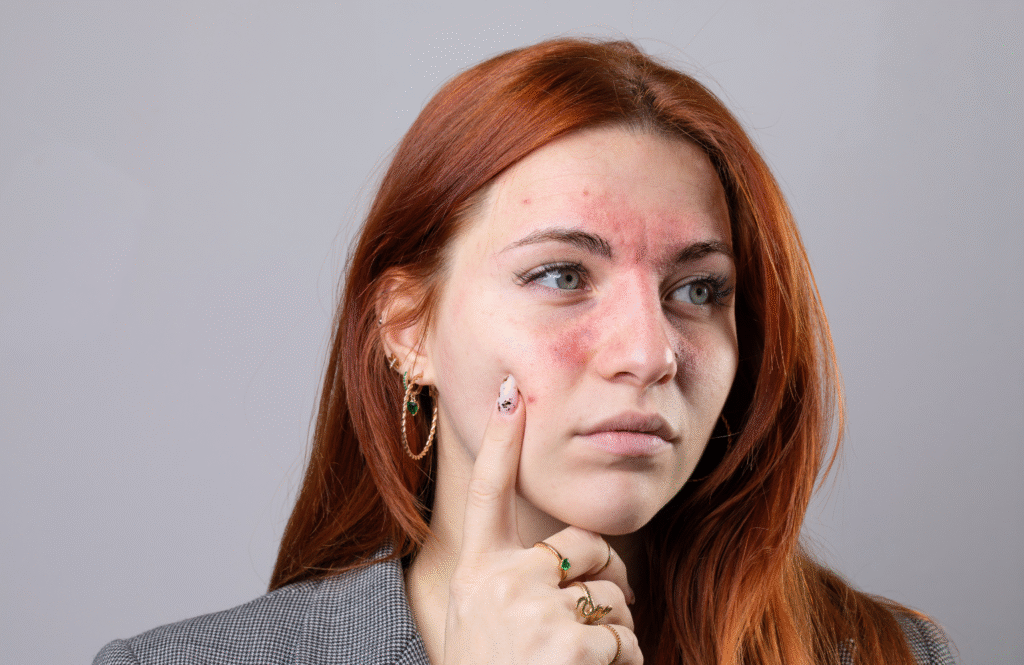
Possible side effects include:
- Mild skin irritation or allergic reaction, especially with products containing added fragrances or essential oils.
- Dryness or redness from overuse, particularly with high-concentration THC formulas.
- When taken orally or inhaled, THC may cause dizziness, dry mouth, or fatigue in some users.
Used responsibly, medical cannabis can be a safe and natural ally in managing eczema, offering relief without harsh chemicals or steroids.
The Calm Beneath the Surface
Medical cannabis may offer soothing effects for some people with eczema, helping ease inflammation and irritation. Still, evidence remains limited and mixed. Government research continues to assess its safety, dosing, and long-term outcomes. For now, cannabis should be viewed as a possible complementary option rather than a proven treatment. Working closely with a licensed healthcare provider remains the best path to healing, both safely and sustainably.
FAQs
1. Can medical cannabis help reduce eczema flare-ups?
Some early studies from the National Institutes of Health (NIH) suggest cannabinoids like CBD may help calm inflammation and itching associated with eczema. However, more large-scale clinical trials are needed before it can be considered a proven treatment.
2. Is CBD or THC better for eczema?
According to NIH research, CBD shows stronger anti-inflammatory and soothing properties without psychoactive effects, making it a safer choice for topical or therapeutic use than THC for most people.
3. Are cannabis creams and oils safe for sensitive skin?
The U.S. Food and Drug Administration (FDA) warns that many over-the-counter CBD products are unregulated. Always choose products tested for purity and consult a healthcare provider before applying to sensitive or damaged skin.
4. Can medical cannabis interact with eczema medications?
Yes. Cannabis compounds can alter how the body processes certain drugs. The FDA and NIH recommend consulting a licensed medical professional before combining cannabis with prescription treatments.
5. Are there any side effects of using cannabis for eczema?
Mild skin irritation, dryness, or allergic reactions may occur. The Centers for Disease Control and Prevention (CDC) also notes that contact with raw cannabis plants can trigger dermatitis in sensitive individuals.
6. Is medical cannabis legal for treating eczema?
Laws differ by state. The U.S. federal government classifies cannabis as a Schedule I substance, though many states allow medical use for qualifying conditions. Always check local medical marijuana regulations before use.
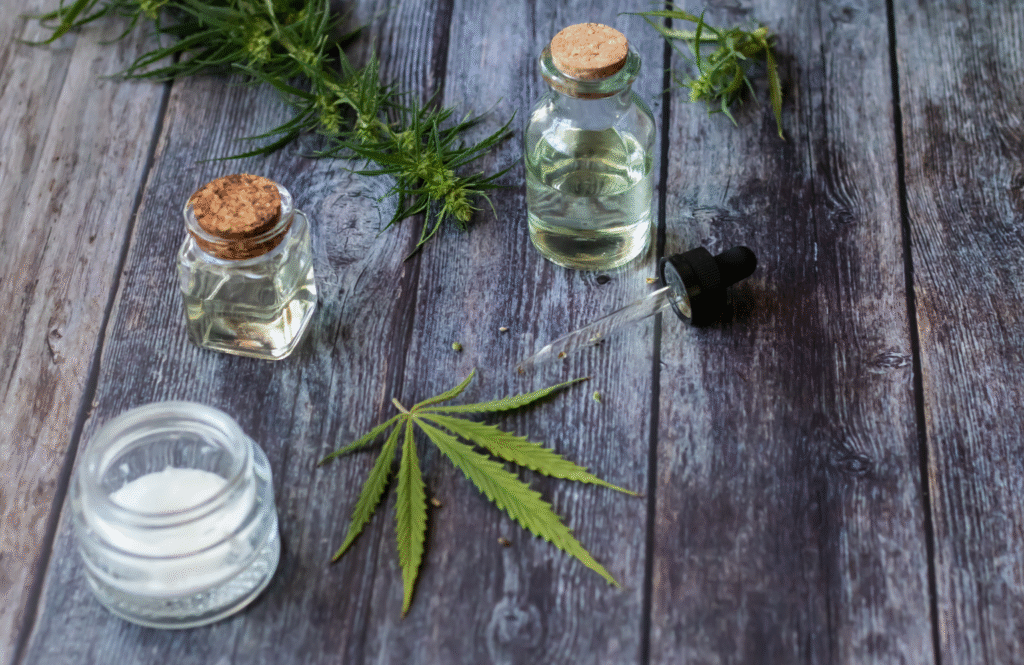
Take the Next Step Toward Relief
If eczema is affecting your comfort and daily life, guidance from our licensed medical cannabis physician can help you explore safe, evidence-based options.
Schedule your consultation today and find out whether medical cannabis could support your skin health and overall well-being.
Ready to find the
perfect strain for your needs?
Navigating the complexities of medical marijuana laws can be tricky, but with the right information, you can protect your privacy and your rights as a medical cannabis cardholder. At Marijuana Specialist Near Me, we make the process of obtaining a medical marijuana card straightforward, with online consultations and guidance through the legal landscape, ensuring you’re well informed about how your card can be used without compromising your privacy.

